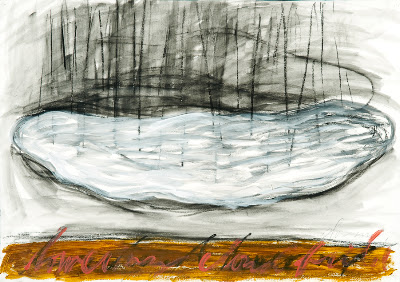This is my first project since joining Q Ave Press as an editor-at-large and advisory board member, and I couldn't have found a better collection to get behind. Heather's poems are playful, wry, earnest, smart, terse, and sizzling with a fresh alertness. From tract-house patterns seen from the sky to the shine of cellophane caught in a branch to the exploded Challenger shuttle, these poems are witness and anthem to the strangeness, fragility, and full-throttle thrill of being alive in "flyover" country. Read them for yourself!
You can order directly from Q Avenue Press or come by table K9 at the AWP Bookfair in Chicago March 1-3. Heather will be at the table, signing copies 3:00-4:00pm on Thursday and Friday.
Here's a taste of FLYOVER to tide you over until your own copy arrives:
DO NOT LEAVE THIS BOX
Do not leave this box in heat and sunlight.
It might rot. It might already be rotten. Still,
the cherry trees blossom and grow heavy,
and in the bog that stretches from the shadow
of the superstore, the Sandhill crane folds
minnows in its beak. Stiff-legged, a woman
in the stockroom unbinds the plastic-bound
boxes from pallets that arrive on trucks,
twenty tons per container, one of many
the cranes stack stories high on the ship
loaded to heavy displacement in Shanghai
to course across shipping lines at speeds of
over twenty knots. Be careful with this box.
Most likely it has crossed the ocean more
than twice, first as product, then as fiber bought
in tonnage and recycled for remanufacture
as corrugated board, then expertly assembled
in the Zhejiang Province by a young woman
who pressed its corners with quick hands.
Under her mattress she has hidden a set of nested
ornamental boxes. On the lid of the smallest
is a woodcut of a crane, for luck.
(originally published in Southeast Review)
 |
| Artwork by Laura Foster |




